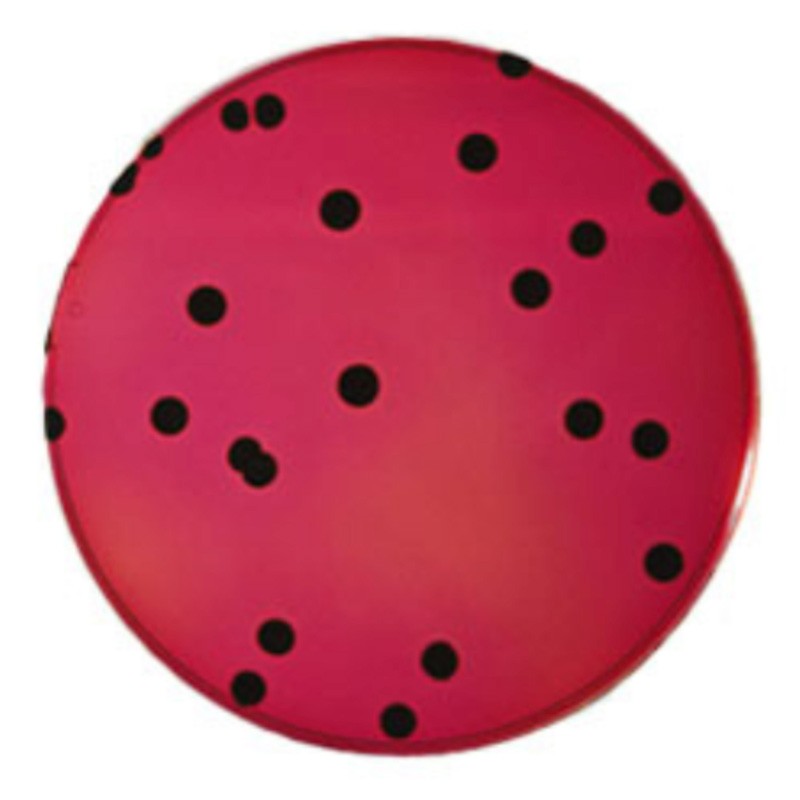- +Products
- +Allergen testing
- +Culture Media - reagents and reference material
- +Environmental testing solutions
- +Laboratory Consumables
- +Laboratory equipment
- +Microbiology equipment
- +Neogen® Food Safety Solutions
- +Temperature & Humidity Monitoring
- Services
- Support
- News
- +About Us
- Contact

XLT4 Agar (RTU)
XLT4 (Xylose-Lysine-Tergitol 4) Agar is a selective isolation medium for the detection of Salmonella, except for Salmonella Typhi and Paratyphi.
XLT4 agar can be used as the second media of choice in the normalized methods of Salmonella detection in food microbiology. It is also used as media of choice in animal health for Salmonella detection.
The typical composition corresponds to that defined in the standards NF U47-102.
Available in the following formats:
Ready-to-use medium: 20 Petri plates Ø 90 mm.
Also available as dehydrated base medium: 500 g bottle (BK156HA). To be used with the Tergitol 4 Selective Supplement (BS03908).
In compliance with regulatory requirements, a USDA permit (VS 16-3) is mandatory for shipments from Canada to the USA due to the inclusion of peptone, an animal byproduct.
Xylose is fermented by enteropathogenic bacteria, with the exception of Shigella, which are therefore differentiated from other bacteria. After having exhausted the xylose, Salmonella decarboxylate lysine (via lysine decarboxylase) to cadaverine, which provokes an increase in the pH. In an alkaline (basic) environment Salmonella forms red colonies in the presence of the pH indicator, phenol red.
Black colonies, due to the appearance of iron sulfide in the colony center, are formed through the reduction of ferric ammonium citrate by pathogenic hydrogen sulfide producers.
The medium contains two additional sugars, lactose and sucrose. Fermentation of either or both sugars results in acidification of the medium and leads to the formation of yellow colonies in the presence of phenol red indicator.
Non-pathogenic strains that do not decarboxylase lysine produce an acidification from the sugar fermentation. The resulting decrease in pH prevents the blackening of the colonies.
Tergitol 4 is the commercial name of a 26-28% solution of an anionic detergent, 7-ethyl 2-methyl 4-undecyl sulfate, in a sodium salt form. It inhibits contaminating Gram-positive flora and numerous Gram-negative strains, notably Proteus.
Download
Related Products
XLT4 Agar





